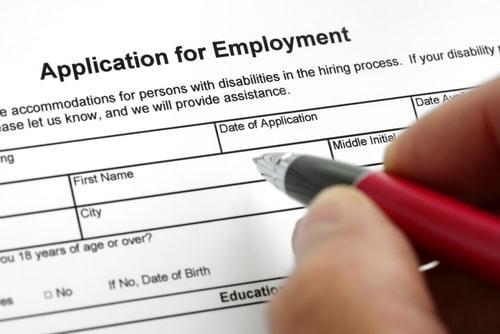Recent Blog Posts
Cell Phone Use Still Prevalent on U.S. Roadways
 Do you use your cell phone while you are driving? If you can honestly answer that question with a firm “no,” you are squarely in the minority of American drivers, a new study suggests. With cellular phones and mobile devices having been a part of our lives for more than two decades, nearly everyone is aware of the dangers they present while behind the wheel. For a variety of reasons, however, we cannot seem to put our devices down and focus on the road.
Do you use your cell phone while you are driving? If you can honestly answer that question with a firm “no,” you are squarely in the minority of American drivers, a new study suggests. With cellular phones and mobile devices having been a part of our lives for more than two decades, nearly everyone is aware of the dangers they present while behind the wheel. For a variety of reasons, however, we cannot seem to put our devices down and focus on the road.
Disturbing Numbers
According to a study recently conducted by Zendrive, a driving analytics company, U.S. drivers use their phones in some way on 88 percent of the trips they take. Think about that for a moment. These numbers mean that only about one trip in every ten is completed without the driver using his or her cell phone or mobile divorce. Even more telling was the scope of the research; Zendrive analyzed data collected from more than 3 million drivers covering some 5.6 billion miles of driving. The study’s findings suggest that the issue is not limited to a particular demographic or age group—nearly everyone uses their phone while driving.
New Bill Aims to Protect Student Cell Phone Privacy
 In 2014, the United States Supreme Court ruled that the police could not force a person to allow his or her cell phone to be searched unless a warrant was obtained first—even if the person was arrested. Today, however, as technology has continued to advance, school students are more likely than ever to have mobile devices with them in the classroom. If a teacher suspects that a student is violating school rules on his or her phone or tablet, does the teacher have the right to check the student’s device? Connecticut could be about to answer that question as a proposed privacy measure is making its way through the state’s legislature.
In 2014, the United States Supreme Court ruled that the police could not force a person to allow his or her cell phone to be searched unless a warrant was obtained first—even if the person was arrested. Today, however, as technology has continued to advance, school students are more likely than ever to have mobile devices with them in the classroom. If a teacher suspects that a student is violating school rules on his or her phone or tablet, does the teacher have the right to check the student’s device? Connecticut could be about to answer that question as a proposed privacy measure is making its way through the state’s legislature.
Constitutional Protections
The Fourth Amendment to the United States Constitution protects citizens from unreasonable and improper searches and seizures of personal property. Over the years, case law has clarified what constitutes reasonable and proper searches, but such limitations, in general, only apply to law enforcement agencies and government entities.
New Haven Jury Awards $6.4 Million Wrongful Death Verdict
 Losing a loved one in any type of an accident is certainly heartbreaking. When a family member is killed as the result of negligence by another person or entity, the situation is often even more tragic. While nothing can truly make up for the grief and pain experienced by the victim’s spouse, children, and other relatives, depending on the circumstances, they may be able to seek compensation for their loved one’s death from the responsible party or parties. As a recent ruling by a New Haven Superior Court shows, in some cases, a wrongful death award can be quite substantial.
Losing a loved one in any type of an accident is certainly heartbreaking. When a family member is killed as the result of negligence by another person or entity, the situation is often even more tragic. While nothing can truly make up for the grief and pain experienced by the victim’s spouse, children, and other relatives, depending on the circumstances, they may be able to seek compensation for their loved one’s death from the responsible party or parties. As a recent ruling by a New Haven Superior Court shows, in some cases, a wrongful death award can be quite substantial.
A Preventable Accident?
The wrongful death action was filed in New Haven in 2014 following a fatal accident in East Haven two years earlier. In July of 2012, a 51-year-old man was riding his bicycle on Coe Avenue when he was struck from behind by a van driven by a 52-year-old Milford woman. The van was owned by a Guilford-based outreach organization for children and adults with special needs, and the driver was transporting two clients of the non-profit group.
"Ban the Box" Law Now in Effect in Connecticut
 Throughout his two terms in office, Connecticut Governor Dannel P. Malloy has been influential in implementing numerous reforms in the state’s criminal justice system. Many of his plans—known collectively as the “Second Chance Society”—have focused on rehabilitating non-violent and drug offenders rather than continuing to emphasize criminal penalties. Last summer, Governor Malloy renewed his efforts to help former offenders to become productive members of society once again by signing a measure that limits most employers’ ability to ask about a job applicant’s criminal history.
Throughout his two terms in office, Connecticut Governor Dannel P. Malloy has been influential in implementing numerous reforms in the state’s criminal justice system. Many of his plans—known collectively as the “Second Chance Society”—have focused on rehabilitating non-violent and drug offenders rather than continuing to emphasize criminal penalties. Last summer, Governor Malloy renewed his efforts to help former offenders to become productive members of society once again by signing a measure that limits most employers’ ability to ask about a job applicant’s criminal history.
“Ban the Box” Laws on the Rise
The new law took effect on January 1, 2017, making Connecticut one of 26 states to institute what has become known as a “Ban the Box” statute. The phrase was coined by civil rights groups in reference to the check box on many job applications that an applicant must check if he or she has a criminal record. Proponents of such laws believe that employers tend to screen out applicants with blemishes in their background, despite being otherwise qualified for an available position.
Motorcycle Accident Settlement Highlights the Importance of Supporting Evidence
 Over the last several years, there has been much written and spoken about the need for police officers to wear video cameras attached to their person when on duty. Public outcry on the matter has grown as police shootings and alleged incidents of officer misconduct have continued to occur across the country. Proponents of mandatory body cameras believe that the recording devices can be used to hold law enforcement personnel fully accountable for their actions. While this may be true, body cameras can also provide supporting evidence in any situation to which the officer may have been a witness, including a motorcycle accident.
Over the last several years, there has been much written and spoken about the need for police officers to wear video cameras attached to their person when on duty. Public outcry on the matter has grown as police shootings and alleged incidents of officer misconduct have continued to occur across the country. Proponents of mandatory body cameras believe that the recording devices can be used to hold law enforcement personnel fully accountable for their actions. While this may be true, body cameras can also provide supporting evidence in any situation to which the officer may have been a witness, including a motorcycle accident.
Dangerous Driving Leaves Motorcycle Rider Injured
In May of 2015, a middle-aged Watertown man was riding his motorcycle in Naugatuck when, without warning, a pickup truck attempted to turn across traffic. The truck hit the motorcycle, sending the man flying. The rider suffered a number of injuries, including serious damage to his left leg and ankle which required several surgeries. All told, the man incurred more than $100,000 in medical bills and remains partially disabled.
Federal Judge Allows Electrocuted Trespasser Lawsuit to Move Forward
 If you are on someone else’s property without their permission and you are injured, do you have any rights to seek compensation for your injuries? In many cases, you may be rather out of luck, as a property owner has relatively few responsibilities for keeping adult trespassers safe—children may be a different story. Depending on the circumstances, however, you may have some hope of holding the property owner liable for your damages. A ruling in federal court in Connecticut recently addressed this question and allowed a lawsuit to continue on behalf of an injured trespasser.
If you are on someone else’s property without their permission and you are injured, do you have any rights to seek compensation for your injuries? In many cases, you may be rather out of luck, as a property owner has relatively few responsibilities for keeping adult trespassers safe—children may be a different story. Depending on the circumstances, however, you may have some hope of holding the property owner liable for your damages. A ruling in federal court in Connecticut recently addressed this question and allowed a lawsuit to continue on behalf of an injured trespasser.
Gruesome Injuries
In March 2011, a 26-year-old man climbed an electrical tower on property owned by a commuter railway company. It is unclear how high he had climbed, but while well above the ground, the man was hit by an arc electric shock from one of the surrounding high-voltage wires. He subsequently fell from the tower and was caught by a network of live wires beneath him while electricity continued to surge through his body. Witnesses say they saw the man "hanging with his leg in flames from the tower," before rescue workers could extract him nearly 45 minutes later. Somehow, the man survived but suffered burns over most of his body, and both of his legs had to be amputated.
Witnessing a Crime on Social Media
 It has been said that you can find anything online if you look hard enough. While some people use the internet to find entertaining videos, news stories, sports highlights, and hobby advice, others are attracted to the way that it allows them to share their lives with others. Social media outlets have become an extremely popular form of communication, with Facebook boasting more than 1.8 billion—yes, billion with a “b”—active monthly users. Facebook Live, a live video streaming feature, launched about a year ago, giving users the ability to instantly share videos of their exploits and experiences with their friends. But, what happens when those exploits are actually homicides or sexual assaults being broadcast in real time? Does a person who sees a crime on social media have a legal obligation to report it to appropriate authorities?
It has been said that you can find anything online if you look hard enough. While some people use the internet to find entertaining videos, news stories, sports highlights, and hobby advice, others are attracted to the way that it allows them to share their lives with others. Social media outlets have become an extremely popular form of communication, with Facebook boasting more than 1.8 billion—yes, billion with a “b”—active monthly users. Facebook Live, a live video streaming feature, launched about a year ago, giving users the ability to instantly share videos of their exploits and experiences with their friends. But, what happens when those exploits are actually homicides or sexual assaults being broadcast in real time? Does a person who sees a crime on social media have a legal obligation to report it to appropriate authorities?
Recent Examples
The issue has been particularly illuminated by two high-profile examples in recent weeks—both involving actions broadcasted on Facebook Live. The first involved an alleged gang rape of a Chicago teenager by several juveniles and at least one adult, according to reports. Thus far, Chicago police have arrested one of the minors and another turned himself in, but at least 40 people watched the streaming video.
Slip and Fall Injury Liability
 Any type of fall can result in catastrophic back, neck, and spinal injuries. Sadly, many such accidents are caused by the carelessness or inattentiveness on the part the part of the victim. Rather, they occur due to the actions or negligence of the property owners.
Any type of fall can result in catastrophic back, neck, and spinal injuries. Sadly, many such accidents are caused by the carelessness or inattentiveness on the part the part of the victim. Rather, they occur due to the actions or negligence of the property owners.
The Centers for Disease Control and Prevention reports that there were more than 28 million emergency room visits due to unintentional injuries in 2014—the most recent year for which full statistics are available. Many of these were slip and fall accidents which can incur hefty medical bills and thousands of dollars in lost wages for injured victims. It is important to note, however, that if you slipped and fell on someone else’s property, the owner or occupier of the property may be liable for your injuries and the resulting expenses.
Determining Liability
Liability for a slip and fall accident may fall on the owner of the property on which the accident occurred if:
Connecticut Lawmakers Propose New, Tougher Hate Crime Bill
 Efforts are underway in Hartford to bolster the state’s approach to prosecuting hate crimes. A new bill has been proposed and approved by the Senate Judiciary Committee that, if enacted, would make Connecticut’s hate crime penalties among the most severe in the country. The bill’s primary sponsor, Senator Martin Looney, D-New Haven, who is also the Democratic President Pro Tempore in the Senate, says that the legislation is a necessary response to recent “incidents of intimidation and threatening based on bigotry and bias.”
Efforts are underway in Hartford to bolster the state’s approach to prosecuting hate crimes. A new bill has been proposed and approved by the Senate Judiciary Committee that, if enacted, would make Connecticut’s hate crime penalties among the most severe in the country. The bill’s primary sponsor, Senator Martin Looney, D-New Haven, who is also the Democratic President Pro Tempore in the Senate, says that the legislation is a necessary response to recent “incidents of intimidation and threatening based on bigotry and bias.”
Over the last few months, there have been numerous reports of hate crimes throughout the state, including bomb threats called in to Jewish Community Centers and other offenses against African-Americans, Muslims, and transgender individuals. In fact, the Anti-Defamation League, an organization founded to combat anti-Semitism and discrimination, reports that the number of hate crimes has doubled in Connecticut in the last year.
Spring Season Brings New Dangers for Drivers
 Despite a few major snowstorms—including Winter Storm Stella which virtually shut down the Northeast for a day or so—the 2016-2017 winter was a relatively mild one. While the cold season seemed to retighten its grip a little this month, spring is officially upon us and warmer weather will soon be here. Spring is a season of new beginnings, as trees begin to show signs of green once again and animals reemerge from their winter hideouts. Amidst the optimism of the season, there are also new dangers, especially for drivers, motorcycle riders, bicyclists, and pedestrians who use Connecticut’s roadways.
Despite a few major snowstorms—including Winter Storm Stella which virtually shut down the Northeast for a day or so—the 2016-2017 winter was a relatively mild one. While the cold season seemed to retighten its grip a little this month, spring is officially upon us and warmer weather will soon be here. Spring is a season of new beginnings, as trees begin to show signs of green once again and animals reemerge from their winter hideouts. Amidst the optimism of the season, there are also new dangers, especially for drivers, motorcycle riders, bicyclists, and pedestrians who use Connecticut’s roadways.
Roadway Wear and Tear
When the snow flies, we look to road maintenance crews to keep streets and highways safe by using snowplows, salt and sand spreaders, and other tools. These implements—along with effects of ice forming in existing cracks in the asphalt or pavement—can leave gouges, potholes, and debris in travel lanes. A driver who is even mildly distracted could easily hit a pothole, causing him or her to lose control and collide with another vehicle. Leftover sand and gravel are especially dangerous for motorcyclists who may not always see the hazard until it is too late.






